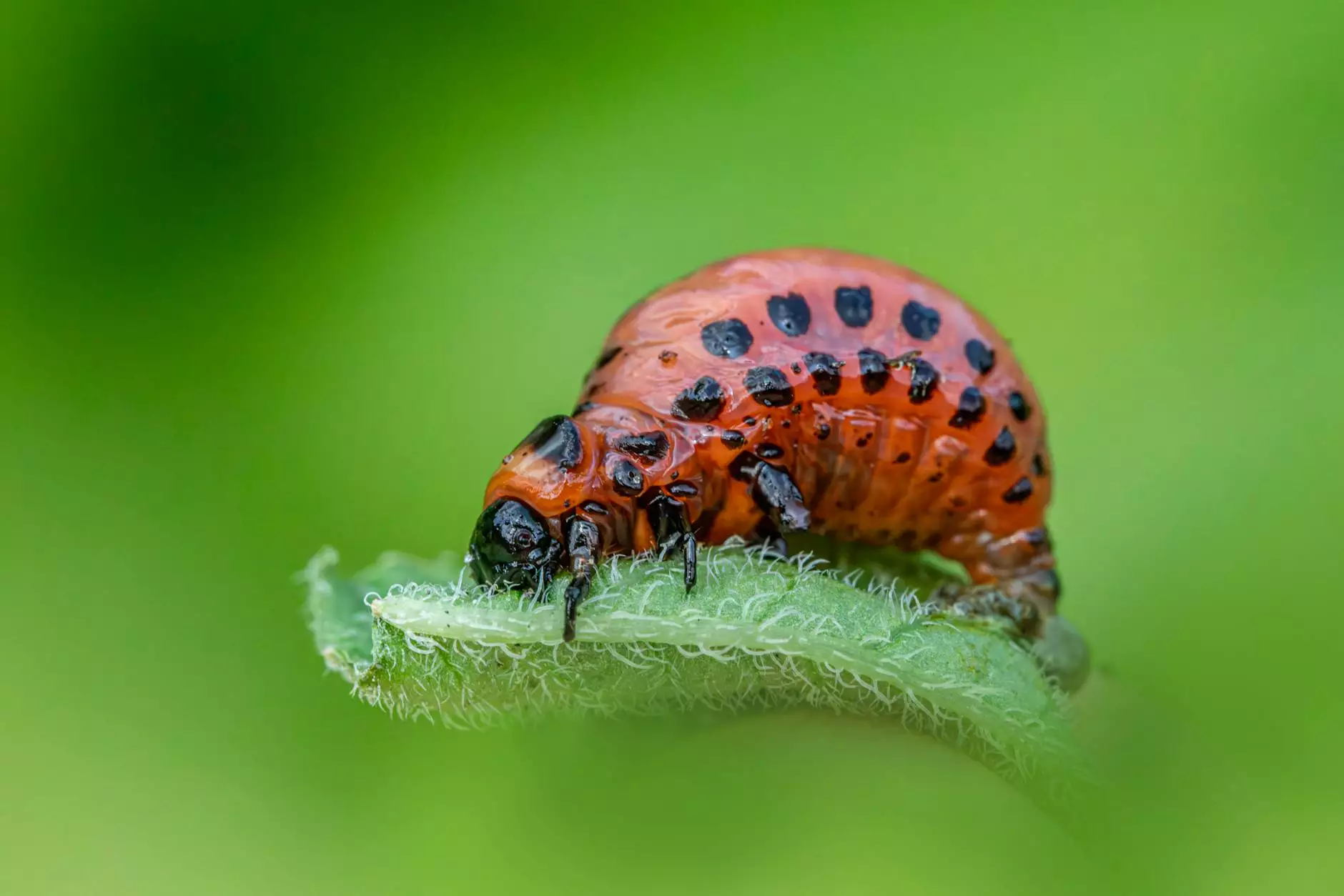Effective Insecticide for Rice Bug: Enhancing Crop Health and Productivity

Insect pests pose a significant threat to the agricultural sector, particularly in rice production. Among these pests, the rice bug—known scientifically as the rice stink bug (Oebalus pugnax)—is notorious for causing substantial damage to rice crops. Investing in an effective insecticide for rice bug is crucial for farmers looking to maintain healthy crops and maximize their yields.
The Importance of Addressing Rice Bug Infestations
The rice bug can severely impact the health of rice plants, leading to decreased productivity and economic losses for farmers. Understanding the biology and behavior of these pests is essential for effective management. Here’s why rice bug control is vital:
- Feeding habits: Rice bugs feed on the sap of rice plants, which can weaken the plants, leading to stunted growth and yield loss.
- Potential for disease transmission: Insects like rice bugs can act as vectors for various plant diseases.
- Economic impact: Losses due to rice bug infestations can significantly affect farmers' livelihoods.
Signs of Rice Bug Infestation
Identifying rice bug infestations early is critical in managing their impact. Here are some common signs:
- Visible pests: Adult rice bugs and their nymphs can often be seen on rice plants.
- Discoloration of grains: Infested grains may appear discolored or shriveled.
- Deformed panicles: Damage to the panicles can lead to lower grain sets.
Choosing the Right Insecticide for Rice Bug Control
When selecting an insecticide for rice bug management, several factors must be considered:
1. Types of Insecticides
There are several categories of insecticides, each with distinct modes of action:
- Contact insecticides: These kill pests upon contact. Examples include pyrethroids and carbamates.
- Systemic insecticides: These are absorbed by the plant and provide longer-lasting protection. Examples include neonicotinoids.
- Biopesticides: Derived from natural materials, these are effective and environmentally friendly options.
2. Efficacy and Safety
It’s essential to choose an insecticide that effectively targets rice bugs while being safe for beneficial insects and the overall ecosystem. Consider the following:
- Target specificity: Look for insecticides that specifically target rice bugs without harming beneficial insects.
- Residual activity: Select products with a residual effect to provide longer protection.
- Environmental impact: Choose less toxic options that won't adversely affect local wildlife.
3. Resistance Management
Resistance among pests can develop over time, making it crucial to rotate different classes of insecticides. Strategies for effective resistance management include:
- Rotating insecticides: Use different modes of action to prevent resistance buildup.
- Integrating cultural practices: Combine insecticide use with agronomic practices such as crop rotation and resistant varieties.
Implementing a Pest Management Strategy
To effectively manage rice bug infestations, a comprehensive pest management strategy should be in place. This approach includes:
1. Monitoring and Scouting
Regular field monitoring can help detect infestations early, allowing for timely intervention. Recommended techniques include:
- Field scouting: Inspect plants regularly for signs of rice bugs and their damage.
- Threshold levels: Establish economic threshold levels to determine when to apply insecticides.
2. Integrated Pest Management (IPM)
Implementing an Integrated Pest Management approach can significantly enhance the effectiveness of rice bug control:
- Cultural control: Use crop rotation, resistant varieties, and proper field sanitation to reduce pest populations.
- Biological control: Introduce natural predators or parasitoids that can help control rice bug populations.
3. Chemical Control
Choose and apply the right insecticide for rice bug based on monitoring data to effectively manage infestations.
Benefits of Using Insecticides in Rice Farming
The application of an effective insecticide for rice bug control not only protects crops but also offers numerous benefits, such as:
- Increased yields: Effective insect control leads to better crop health and higher productivity.
- Improved grain quality: Healthy rice plants produce higher quality grains, increasing market value.
- Economic viability: Reduced pest damage translates to better profit margins for farmers.
Conclusion
Farmers play a crucial role in ensuring food security worldwide, and effectively managing pests like the rice bug is paramount to this effort. By selecting the most suitable insecticide for rice bug control and adopting an Integrated Pest Management strategy, farmers can protect their crops, improve productivity, and sustain their livelihoods. Remember, informed decisions and responsible pesticide use are the backbone of successful rice farming.
For more information on pest management strategies and high-quality farming equipment, visit tsgcinc.com.









